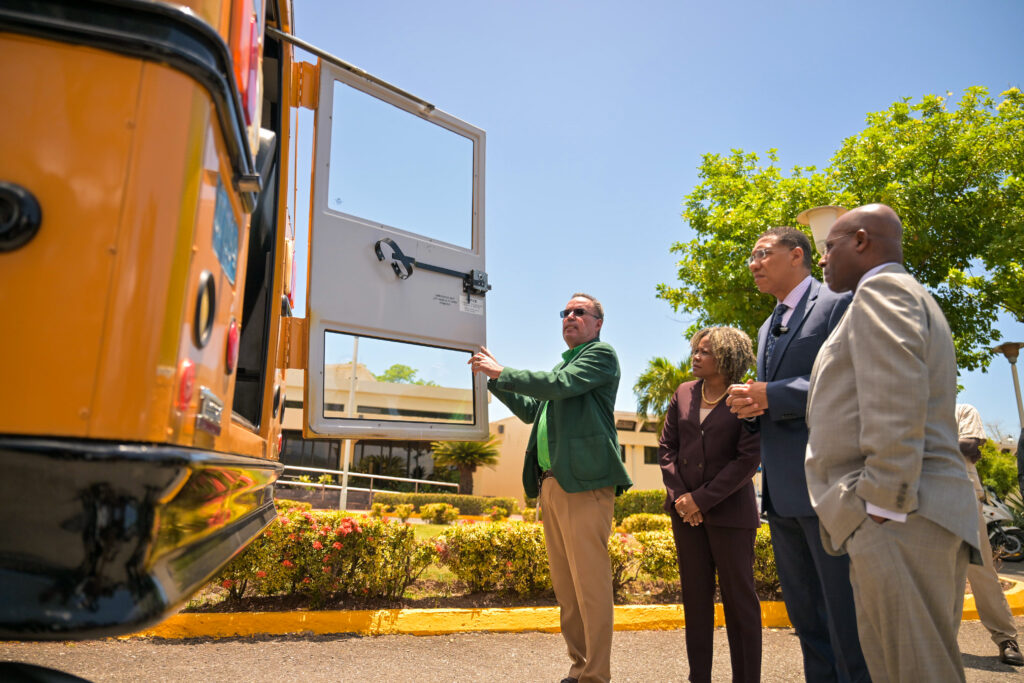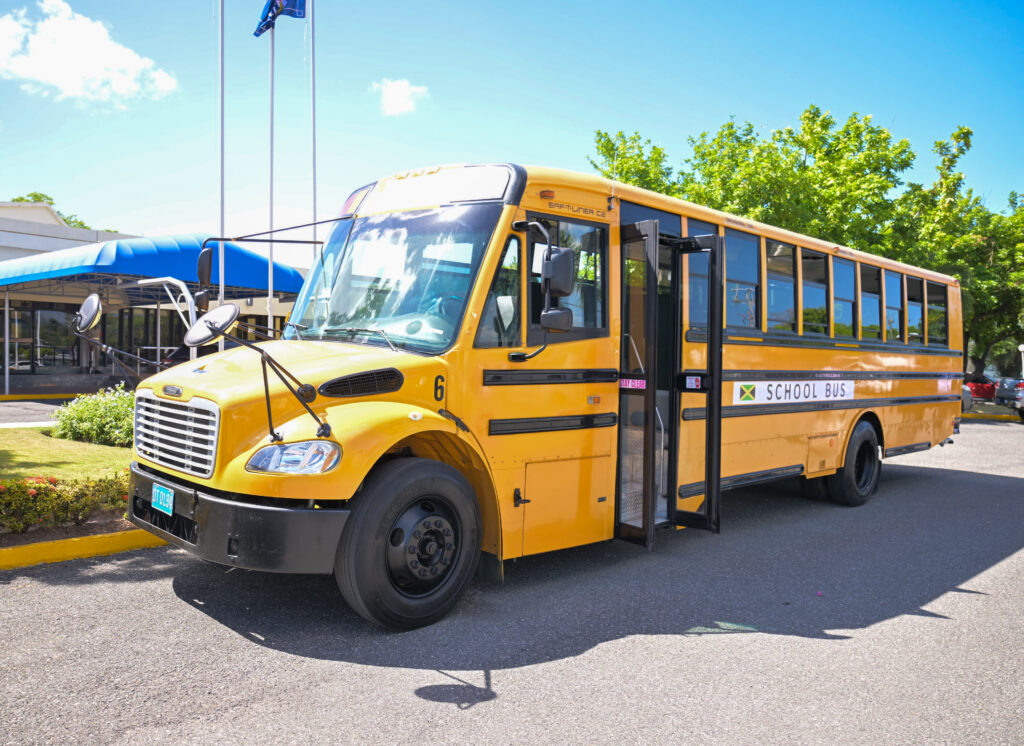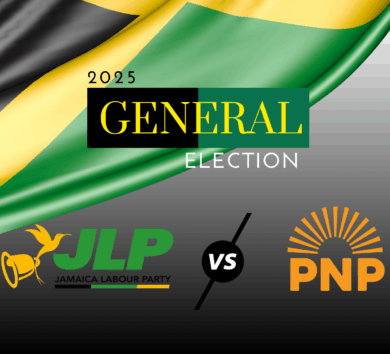

By Rohan Grant
More than forty years ago, I walked the uphill stretch from Constitution Hill to the main road, hoping that when the bus finally came, I could squeeze on. Getting a seat was wishful thinking. We were “schoolers”, and that label didn’t earn you respect. We were often pushed aside, left standing, overlooked, even though we paid our fare.
By the time I reached Excelsior High and later Utech, the routine was the same. No special ride, no seat, and certainly no dignity. We were part of the system but not cared for by it.
That’s why when I look at the school bus initiative launched by the Jamaica Labour Party (JLP), I don’t see a political stunt. I see a breakthrough. I see young people, especially in rural areas, getting something I never did: a reliable, safe, consistent ride to school. I see them getting a seat.

And yet, some are ready to scrap the whole thing, possibly just because they’re not the ones driving it.
The criticisms from the People’s National Party (PNP) have come fast. Senator Damion Crawford says the buses are untargeted. Senator Peter Bunting declared he wouldn’t let his own child ride on what he calls retired old buses with weak suspension and corroded bodies.
But let’s not pretend like the alternative is cleaner, safer, or more efficient.
Recently:
- A Toyota Probox taxi in Trelawny crashed into a truck. Four people died, including a child. The car was allegedly overloaded.
- In Westmoreland, a Toyota Noah minivan collided with a truck, killing five people, including a 15-year-old and her mother. Reckless driving again.
And these aren’t new problems. For years, parts of the public transport system, especially rural taxis, have been labelled reckless, overcrowded, and lawless.
So why are we promoting unregulated taxis over an organised school bus system that is monitored and maintained? Why pretend that age automatically equals danger when the real issue is maintenance and management?

We fly out on planes older than some of these buses and never once ask how many miles are on the engine. We trust safety checks. We trust standards. Why not do the same here, for our own children?
The JLP has projected that over 300,000 students will benefit, with families saving up to J$180,000 a year. The buses may not be brand new, but they’re getting students to school on time, in clean uniforms, with less stress. And most importantly, they’re being treated like they matter.
This isn’t about whether the PNP or JLP gets credit. It’s about whether Jamaican children can get to school safely, consistently, and with dignity. If the routes need improvement, let’s fix them. If safety protocols need tightening, let’s act. But don’t try to cancel the bus just because your party isn’t behind the wheel.
I remember what it felt like to stand up and be overlooked. So when I see these young people sitting, both literally and symbolically, I see progress.
So I say, don’t scrap the bus because you missed the wheel. Buckle up, get involved, and help drive the mission forward.







Comments